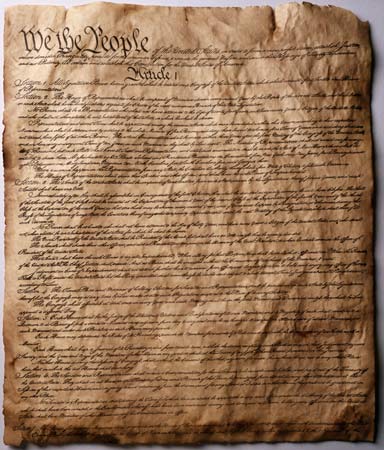This will likely be a longer essay once I have the opportunity to do some more research and to collect my thoughts, but I wanted to get at least a short note out on the subject while Ron Paul’s showing in New Hampshire is still in the news.
Here are two crucial points that Dr. Paul’s legion of true believers seem to miss, or perhaps ignore.
First of all, The Constitution of the United States was not handed down on stone tablets, nor was it written by people who were particularly more wise or prescient than we are. It is certainly a very advanced framework for its time, and brilliant in the use of checks and balances to protect the set of rights that were foremost in the minds of the framers. But throughout our history, through legislation, through jurisprudence and through other formal and informal precedent, a complex overlay of generally accepted addenda has been created. Kluge, that overlay may be, but it requires a special kind of ignorance to pretend as if all of it is irrelevant, harmful or lacking in benefit.
Beyond that issue, though, there is also the notion that the federal government is the only (or even the foremost) threat to our liberty. Paul’s logic and rhetoric suggests that if we simply return to a properly strict adherence to his view of what our Constitution dictates, then all will be well. The problem with this pretense is that it refuses to face the fact that the most serious threat to our liberty – indeed, to our very lives – is the unfettered power of huge, wealthy, corporate interests. Granted, their domination of the government also poses a threat, in that governmental powers are increasingly being used as instruments of subjugation to their will.
There is no escaping the fact that government, at this point, is part of the problem. The irony in Dr. Paul’s philosophy is that his program would make the larger threat to liberty worse, and would only result in broader and deeper enslavement of the people.
Faith in market forces to keep us free, secure and prosperous is, in my view, magical thinking. It depends on turning a blind eye to clear and overwhelming evidence, contemporary and historical, to the contrary.
